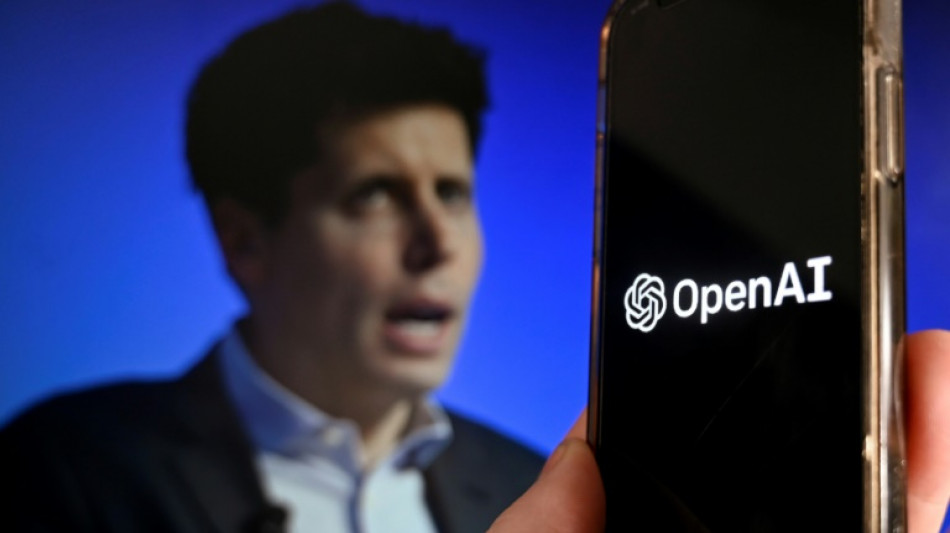

Sam Altman to return as OpenAI CEO after shock ouster
ChatGPT creator OpenAI announced Tuesday that Sam Altman would return as its CEO, days after his shock dismissal plunged the pioneering artificial intelligence firm into crisis.
Altman's dramatic exit on Friday sparked intense lobbying from OpenAI's biggest investors, including tech titan Microsoft, for his return.
Hundreds of OpenAI staff had threatened to quit in a letter released to the media, demanding the resignation of the board as speculation swirled about the future of the company.
OpenAI wrote on X that it "reached an agreement in principle for Sam Altman to return to OpenAI as CEO with a new initial board of Bret Taylor (Chair), Larry Summers, and Adam D'Angelo."
"We are collaborating to figure out the details."
Microsoft CEO Satya Nadella had announced this week that he would hire Altman to lead an AI research team.
Altman said on Tuesday that his return had Nadella's backing.
Microsoft has invested billions of dollars into OpenAI, incorporating its tech into various products including its search engine Bing.
Its data centers have been crucial to the development of OpenAI's ChatGPT, whose success sparked a multi-billion-dollar global race in AI research and development.
Nadella had said that "governance changes" were needed at OpenAI to avoid such disruptive surprises.
"We are encouraged by the changes to the OpenAI board," the Microsoft CEO said on X Tuesday.
"We believe this is a first essential step on a path to more stable, well-informed, and effective governance."
The latest announcement appeared to cap the rollercoaster events unleashed by Altman's firing last week.
The OpenAI board, which included widely respected AI researcher and company co-founder Ilya Sutskever, on Sunday stood by its decision to dismiss Altman and appointed Emmett Shear as interim CEO.
But that did little to quell the outrage within the company or the unease among OpenAI's investors.
Sutskever was among the signatories of the letter from OpenAI's employees demanding the board's ouster.
"I deeply regret my participation in the board's actions," he wrote on X on Monday. "I never intended to harm OpenAI."
Generative AI platforms such as ChatGPT are trained on vast amounts of data to enable them to answer questions, even complex ones, in human-like language.
They are also used to generate and manipulate imagery.
But the tech has triggered warnings about the dangers of its misuse -- from blackmailing people with "deepfake" images to the manipulation of images and harmful disinformation.
(E.Beaufort--LPdF)




